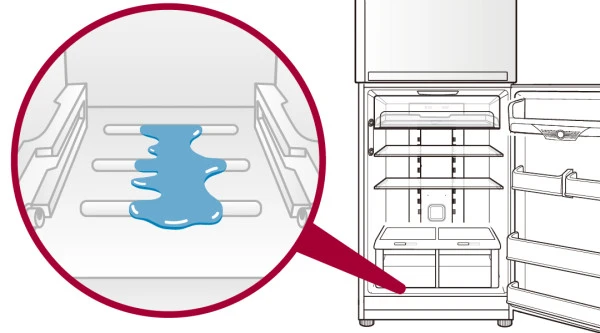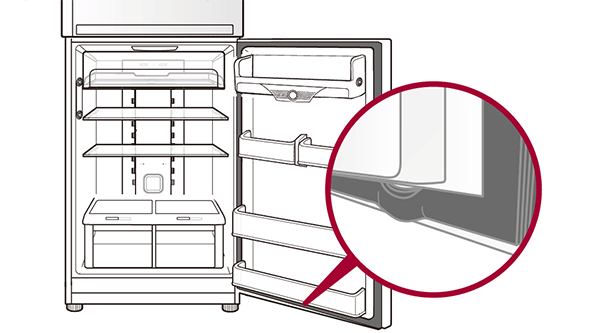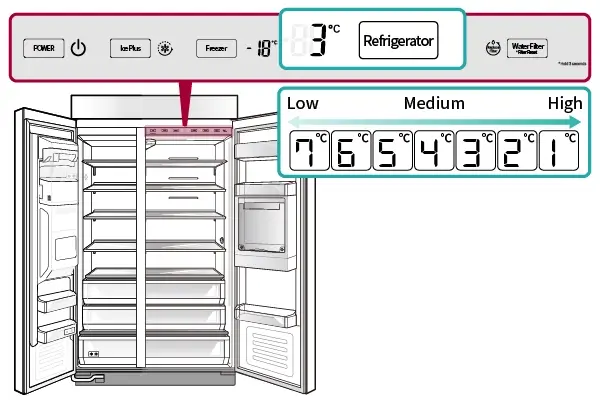When you’re facing the daunting challenge of an LG refrigerator compressor not working, understanding the root causes and exploring efficient troubleshooting steps can significantly ease the process.
The issue often manifests through symptoms such as lack of cooling, unusual noises, or the refrigerator remaining warm, indicating potential compressor or associated component malfunctions.
In my journey with home appliances, I’ve encountered my fair share of compressor failures, each a unique puzzle demanding a tailored solution.
Key Takeaways:
- Troubleshooting an LG refrigerator compressor involves checking the power supply, temperature settings, door seals, condenser coils, start relay, and overload protector, and considering a professional for refrigerant issues.
- Error codes can guide troubleshooting; a reset may resolve minor glitches.
- Common causes of compressor failure include overheating due to dirty coils or electrical faults like a faulty start relay.
Why is My LG Refrigerator Compressor Not Working?
Warm Interior & Incorrect Temperature Settings
Have you ever noticed your LG refrigerator feels a bit warmer than it should? It might be down to the thermostat settings. If set incorrectly or if the auto-defrost cycle malfunctions, it can lead to a warm interior, stressing your compressor. Remember, the right settings keep your fridge cool without overworking the compressor.
Loud Noises & Cycling On and Off Frequently
Hearing more noise from your fridge than usual? It’s a tell-tale sign of compressor distress. Frequent cycling on and off isn’t just annoying—it indicates a deeper issue, potentially with the power supply or electrical components. These symptoms shouldn’t be ignored; they’re your fridge’s cry for help.
Leaking Refrigerant

A refrigerant leak is like a slow poison for your refrigerator’s cooling efficiency. Without enough refrigerant, your compressor works overtime, struggling to cool the interior. This not only increases energy consumption but can lead to premature compressor failure.
Door Seal Issues

Faulty door seals might seem minor, but they can lead to major issues. If warm air seeps in, your compressor has to work harder to maintain the temperature, leading to increased wear and tear. A simple check and clean of the seals can save you a lot of trouble down the line.
Dirty Condenser Coils
The condenser coils are crucial for dissipating heat. When they’re coated in dust, your fridge’s ability to cool efficiently drops, causing the compressor to overheat. Regularly cleaning the condenser coils is an easy maintenance task that can extend the life of your refrigerator.
Faulty Start Relay, Overload, Capacitor
These components are the unsung heroes of your refrigerator’s electrical system. If any of these parts fail, your compressor won’t start properly. Testing them with a multimeter can diagnose the issue, but remember, if you’re not confident doing it yourself, it’s time to call a technician.
Faulty Compressor
Though less common, a faulty compressor itself can be the root of your problems. Compressors are robust, but when they do fail, the refrigerator can’t cool at all. Diagnosing this requires professional help, as it involves compressor testing and potentially complex repairs.
Troubleshooting Steps: LG Refrigerator Compressor Not Working
Let’s dive right into the heart of your LG refrigerator’s woes—the compressor not working.
It’s like the heartbeat of your fridge, and when it skips a beat, everything goes haywire.
I’ve been there, wrestling with my LG unit, hoping for a miracle fix.
So, let me walk you through each step, making this troubleshooting journey as smooth as butter.
Check Power Supply to Fridge
- Inspect the Plug: Ensure it’s firmly plugged into the outlet. Sounds simple, but it’s often overlooked.
- Test the Outlet: Use another device to check if the outlet is working. A non-working outlet could be the silent culprit.
- Circuit Breaker: Sometimes, the solution is as easy as flipping the circuit breaker back on.
Adjust Temperature Setting

- Correct Setting: Verify your fridge’s temperature is set correctly. The ideal refrigerator temperature is between 37°F and 41°F.
- Adjust if Necessary: If you find the setting too high or low, adjust it. This might just do the trick.
Inspect Door Gaskets for Tight Seal
- Inspect for Damage: Check the gaskets for any signs of wear or tear. A good seal is crucial.
- Clean Gaskets: Dirt can prevent a tight seal. Wipe them down with warm, soapy water, then dry thoroughly.
Clean Condenser Coils
- Locate the Coils: Find the condenser coils, usually at the back or beneath your fridge.
- Dust Off: Use a brush or vacuum to remove dust and debris. This improves efficiency and might solve your problem.
Test Start Relay with Multimeter
- Find and Test: The start relay is on the compressor. Use a multimeter to check for continuity. No continuity? You’ll need a replacement.
- Listen for Clicks: A healthy start relay clicks when the refrigerator starts. No click, no good.
Check Overload Protector Continuity
- Location: Attached to the compressor, this protects it from overheating.
- Test for Continuity: Like the start relay, use a multimeter. A failed test means it’s time for a new one.
Call Professional for Refrigerant Issues
- Warning Signs: Fridge not cooling but the compressor runs? It might be a refrigerant issue.
- Call the Experts: Handling refrigerant requires professional skills. Don’t DIY this part.
Listen for Compressor Noise Problems
- Noise Check: Unusual noises from the compressor area are a giveaway.
- Professional Diagnosis: If all else fails, a professional tech can determine if the compressor itself is the issue.
Error Codes & Reset Procedures
When your LG refrigerator starts acting up, the first thing I want you to check is the error codes. Think of these codes as your fridge trying to whisper its problems to you. Each code points to a specific issue, from temperature troubles to fan malfunctions. Here’s how you can become a fridge whisperer:
- Locate the Error Code: Typically, your LG refrigerator will display these codes on the digital panel.
- Consult the Manual: Grab your refrigerator’s manual to decipher what each code means. No manual? No problem! LG’s official website has a comprehensive list.
- Address the Issue: Depending on the code, you might need to clean the coils, reset the fridge, or call in a technician for more complex problems.
Now, if your refrigerator is just being temperamental and not showing any specific error codes, a simple reset might just do the trick. It’s like giving your fridge a fresh start.
Here’s a quick guide:
- Unplug Your Fridge: Safety first! Disconnect your refrigerator from the power source.
- Wait a Bit: Give it about 30 seconds to a minute. This short break allows any stored electrical charges to dissipate.
- Plug It Back In: Reconnect your refrigerator to the power source. This action resets the electronic control board, often clearing any minor glitches.
- Observe: Watch how your fridge behaves. If it returns to its normal, cool self, you’ve fixed the issue. If not, it might be time to delve deeper or consult a professional.
Final Thoughts
“Why is My LG Refrigerator Compressor Not Working?” This question led me down a rabbit hole of research.
I discovered it’s often about the little things: a faulty start relay, dirty condenser coils, or even a thermostat gone rogue.
Each piece of the puzzle is crucial, yet so easily overlooked. Armed with insights and a dose of DIY spirit, tackling this problem feels less like a chore and more like a challenge I’m ready to conquer.
FAQs
How do you reset the compressor on a LG refrigerator?
To reset the compressor on an LG refrigerator, unplug the unit for 30 seconds to 1 minute, then plug it back in. This simple action can reset the refrigerator, allowing the compressor to restart and stabilize the unit’s cooling process within 24 hours.
What would cause a refrigerator compressor not to kick in?
A refrigerator compressor might not kick in due to issues like a faulty start relay, a malfunctioning overload relay/switch, or a damaged motherboard. Checking these components for damage or malfunction can help identify the cause.
What is the most common cause of refrigerator compressor failure?
The most common cause of refrigerator compressor failure is overheating, which can result from dirty condenser coils, insufficient refrigerant, or a malfunctioning condenser fan. These issues lead to the compressor working harder than normal, increasing the risk of failure.
What causes LG compressors to fail?
LG compressors often fail due to a faulty seal system in linear compressors, leading to refrigerant leakage, or due to the compressor’s inability to maintain the necessary pressure for cooling. Other factors include electrical issues like a damaged start relay or overload relay.
Can fridge compressor be repaired?
While it’s possible to repair a fridge compressor, it often requires professional skills and tools. Issues like refrigerant shortage or electrical problems can be fixed by replacing the faulty components. However, due to the complexity and the potential cost involved, sometimes replacing the refrigerator might be more economical than repairing the compressor.
Sources and References
For the topics you’ve discussed, here are the types of sources and references that can provide the actual links and further information you’re seeking:
- LG Support Website: LG’s official support website is an invaluable resource for troubleshooting common issues with refrigerators, including compressor problems. They offer manuals, troubleshooting guides, and error code explanations. (LG Support)
- Appliance Repair Forums: Forums like ApplianceRepairForum.com and Reddit r/appliancerepair on Reddit can provide insights from both professionals and DIY repair enthusiasts. These communities often share experiences and solutions for specific issues, including LG refrigerator compressor problems.
- YouTube Tutorials: Channels like RepairClinic, AppliancePartsPros, or even LG’s official YouTube channel often post detailed tutorials on diagnosing and fixing refrigerator issues, including compressor diagnostics, start relay testing, and refrigerant refilling.
- Professional Appliance Repair Guides: Websites like Fix.com or PartSelect offer detailed guides and videos on how to troubleshoot and repair various refrigerator problems, including compressor failures. These guides often come with step-by-step instructions and list the tools and parts you’ll need.
